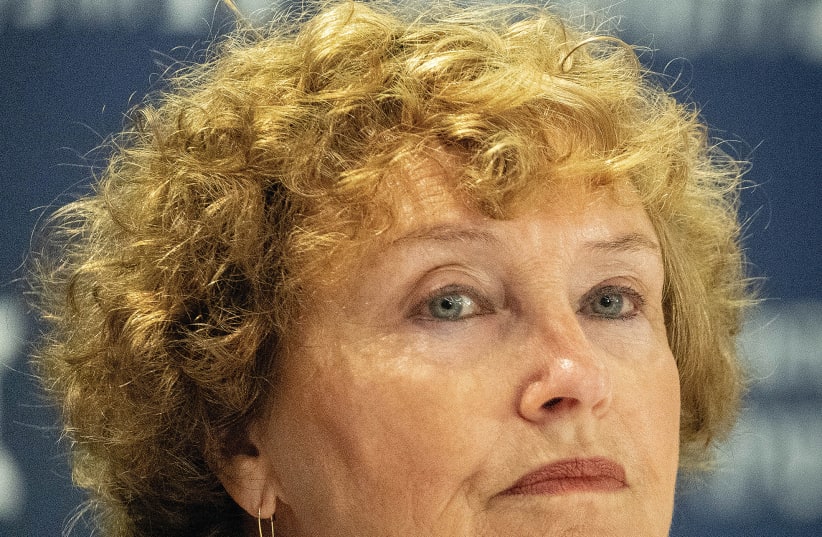This week, the government announced the rollout of a plan to reduce the cost of living in Israel. It includes tax credit for working parents, tariff reductions, and increased negative income tax for low-wage workers.
The plan comes in response to consumer protest regarding inflation, a word that has been on the financially conscious Israeli’s mind for the past few weeks as a developing wave of increased prices has crashed over the nation.
Over the course of 2021, Israel’s consumer price index – a key statistic used to measure inflation – rose by 2.8%. While that number pales in comparison to other nation’s inflation rates during the COVID-19 pandemic’s second year, it looms over Israel’s rate over the last several years, which has consistently remained close to 0%.
One of the driving factors behind the current trend of inflation is an increase in the cost of food. The most notable instance of this unfolded earlier this month, as food mega-manufacturer Osem (a subsidiary of Nestlé) announced that it would be increasing the prices of its products by as much as 5% due to higher costs of packaging, transport and raw materials.
This spurred severe pushback from community leaders, the public, and the finance and economy ministers, the latter of whom cowrote a letter to food manufacturers in Israel urging them not to raise their prices, lest they face government intervention.
“Your announcement of a price increase at this time is cynical and offensive to the citizens of the country,” the ministers wrote, adding that they intend to “stop the rise in prices [in accordance with the] national responsibility expected from the companies in this challenging period, taking into account their economic situation and profits.”
Within the week, Osem canceled its planned price increase.
Additionally, residents of Israel grew restless when, on February 1, the government introduced increased tariffs on electricity (which has been addressed, at least in part, by the government’s aid plan), and raised the maximum price for standard 95 octane gasoline.
“It’s crazy; it’s going to prevent a lot of people from making it to the end of the month,” said a Tel Aviv resident unsettled by the price hike. “[People are] going to get to a situation where they can’t pay for electricity, and they have to sit without it. There are thousands of families in Israel who can’t buy food: they spend most of their life eating bread and margarine. Now they’re coming to take even more from those people?”
The cost increase of electricity and gasoline reflects global increases in material costs. The Electricity Authority directed blame toward the rising cost of coal as a primary cause for the rise in electricity production costs. The Energy Ministry indicated that gas prices are rising in tandem with the surging price of crude oil.
These climbing raw material costs have led to significant supply shortages; the raw materials are only one link in a chain of compounding issues plaguing the global economy.
“GEOPOLITICAL TENSION is influencing the price of oil and coal and natural gas in various parts of the world, and that has contributed to the overall supply problem,” said Prof. Karnit Flug, who is a vice president, research, of the Israel Democracy Institute and a former governor of the Bank of Israel, the nation’s central bank, which aims to maintain the stability of prices and finance in Israel. She granted insight regarding the recent increase in prices and the global trends driving worldwide inflation.
Generally speaking, what’s going on in the world that’s leading to the increased prices that we’re seeing here in Israel?
“Generally, as we all know, we’ve seen a rise in inflation all over the world, in many countries much steeper than in Israel. In the US it’s at 7%; in Europe, it’s about 5.5% on average; according to the OECD, it’s over 6%. In Israel it’s 2.8%, so it’s certainly modest relative to other advanced economies.
“In Israel, the inflation has been more modest, mostly because of the appreciation of the exchange rate, which moderated the conflation of global and local prices. It’s also important to note that a key difference from other countries is that Israel’s inflation is within the Bank of Israel’s inflation target range, which is between 1% and 3%.
“However, it’s definitely a change from the previous year’s. Actually, last year, inflation was -0.7%, so it’s certainly a turnaround. I think the concern in Israel is not so much the inflation, but more that the level of prices in Israel is relatively high; therefore the tolerance to price hikes is quite low.
“The big question is, to what extent is this all a manifestation of temporary factors? Will we see inflation subsiding over the next few months, and to what extent will there be a change in underlying inflationary pressures?”
When you say “inflationary pressures,” what are you referring to?
“Rising costs of transportation, production processes, and shortages of labor – either because of the pandemic or for reasons related to the current state of the labor market – [all contribute] to shortages of supply, which then contribute to rising prices.
“On the other side, we’ve actually seen enhanced demand for various goods. There are consumers who didn’t spend as much as they intended to during the pandemic; they didn’t pay for various services; they didn’t go to holiday; and they found themselves with more savings, with which they could buy more. So there’s an increased demand for goods, but there’s no supply.”
Israel has a very stable history in regards to inflation, with the exception of one major event, which was in the 1980s. It’s a period where I imagine you were still a student in university, but how would you compare today’s situation with what occurred then?
“Oh, I think there’s absolutely no comparison. The episode of the mid-’80s was during a period where government spending was a very, very large part of the economy. The government deficit was about 15% of GDP, partly a result of spending on defense; there was also a huge increase in energy prices. All of these factors combined led to the accelerated expansion, which peaked at 450% in 1984. I think there is really nothing to compare with the current situation at all.”
Is this a situation where the economy has to get worse before it gets better?
“It’s hard to say. We tend to focus on prices that go up – it catches our eye, especially in the supermarket; but are [they] aware of the fact that prices in the clothing vertical went down by almost 8% last year? That doesn’t make headlines. Even fruits and vegetables in 2021 – the average price of fruits and vegetables went down.
“I think that the expectation a few months ago was that it [the period of supply issues and inflation] was going to be transitory and relatively short; I think the current expectation of most central banks is that it’s mostly transitory, but it’s going to be longer than we previously expected.... Whether [the economy] is going to get worse before it gets better, I’m not sure.”


